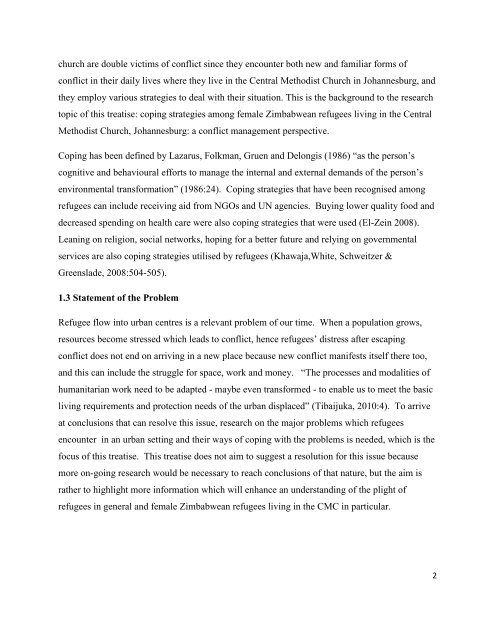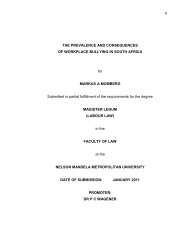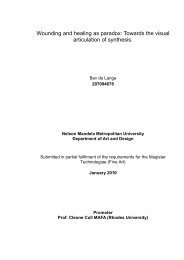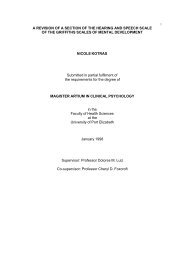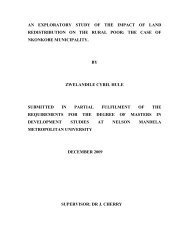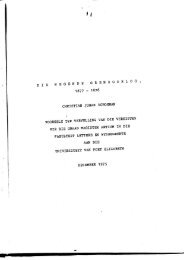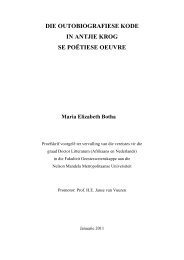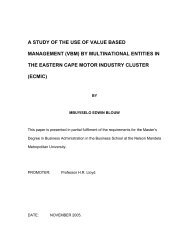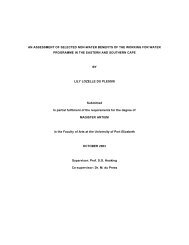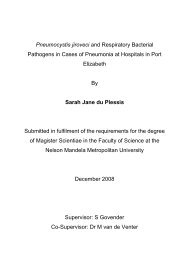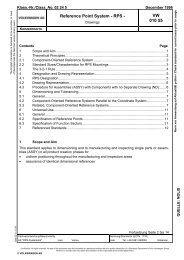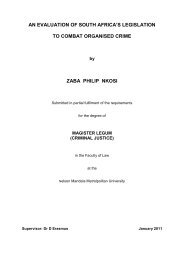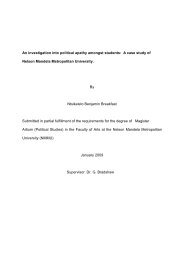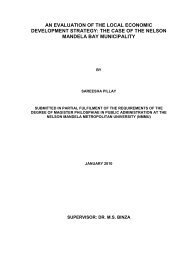Guro Lauvland Bjorknes.pdf - NMMU
Guro Lauvland Bjorknes.pdf - NMMU
Guro Lauvland Bjorknes.pdf - NMMU
Create successful ePaper yourself
Turn your PDF publications into a flip-book with our unique Google optimized e-Paper software.
church are double victims of conflict since they encounter both new and familiar forms of<br />
conflict in their daily lives where they live in the Central Methodist Church in Johannesburg, and<br />
they employ various strategies to deal with their situation. This is the background to the research<br />
topic of this treatise: coping strategies among female Zimbabwean refugees living in the Central<br />
Methodist Church, Johannesburg: a conflict management perspective.<br />
Coping has been defined by Lazarus, Folkman, Gruen and Delongis (1986) “as the person‟s<br />
cognitive and behavioural efforts to manage the internal and external demands of the person‟s<br />
environmental transformation” (1986:24). Coping strategies that have been recognised among<br />
refugees can include receiving aid from NGOs and UN agencies. Buying lower quality food and<br />
decreased spending on health care were also coping strategies that were used (El-Zein 2008).<br />
Leaning on religion, social networks, hoping for a better future and relying on governmental<br />
services are also coping strategies utilised by refugees (Khawaja,White, Schweitzer &<br />
Greenslade, 2008:504-505).<br />
1.3 Statement of the Problem<br />
Refugee flow into urban centres is a relevant problem of our time. When a population grows,<br />
resources become stressed which leads to conflict, hence refugees‟ distress after escaping<br />
conflict does not end on arriving in a new place because new conflict manifests itself there too,<br />
and this can include the struggle for space, work and money. “The processes and modalities of<br />
humanitarian work need to be adapted - maybe even transformed - to enable us to meet the basic<br />
living requirements and protection needs of the urban displaced” (Tibaijuka, 2010:4). To arrive<br />
at conclusions that can resolve this issue, research on the major problems which refugees<br />
encounter in an urban setting and their ways of coping with the problems is needed, which is the<br />
focus of this treatise. This treatise does not aim to suggest a resolution for this issue because<br />
more on-going research would be necessary to reach conclusions of that nature, but the aim is<br />
rather to highlight more information which will enhance an understanding of the plight of<br />
refugees in general and female Zimbabwean refugees living in the CMC in particular.<br />
2


